Posted on 7/29/2023
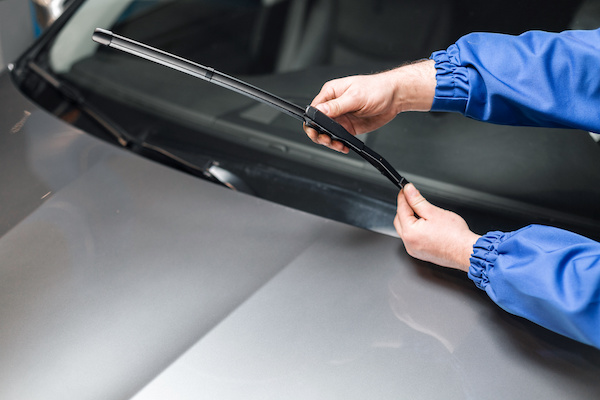
Learning how to perform basic maintenance on your car can save you time and money over time. While some repairs should be left to professionals, every car owner should know several essential DIY car maintenance tips and tricks. Car Maintenance Tips Following these tips regularly will help ensure your vehicle remains in good condition: 1. Change Oil and Filters Regular oil changes are crucial for maintaining a healthy engine. Follow the manufacturer's recommendations regarding oil type and change intervals. Additionally, replace the oil filter during each oil change to ensure optimal filtration of contaminants. 2. Inspect Tires Check tire pressure monthly using a reliable gauge since underinflated or overinflated tires can affect fuel efficiency and safety while driving. Also, inspect tires for any signs of wear or damage, such as bulges or cuts on the sidewall. 3. Replace Worn-Out Wipers Faulty wiper blades reduce visibility during rain or snowstorms, which can be dangerous ... read more
Posted on 6/27/2023
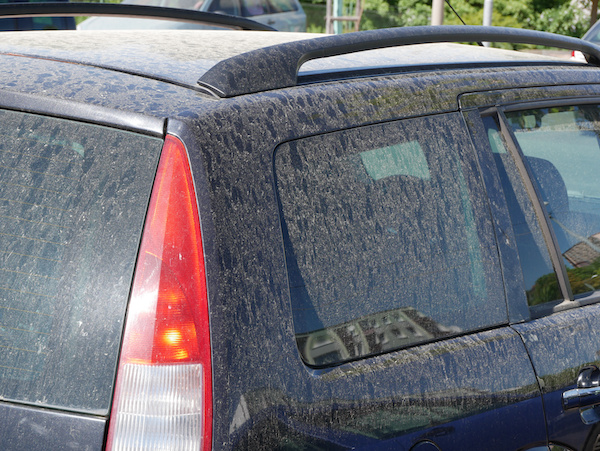
In the warmer months in Charlotte, nature begins its vibrant reawakening, with flowers blooming and trees bursting with leaves. While this is a delightful sight for many, it also means one thing: pollen is in the air. As pollen levels rise, you may find yourself wondering, "Is pollen bad for my car?" The answer might surprise you. Pollen, those tiny, powdery grains produced by plants for reproduction, can indeed have an impact on your vehicle. If left unchecked, it can accumulate on your car's exterior, potentially causing a range of issues. Paint Damage: Pollen contains microscopic particles that, when left on your car's surface, can act like abrasive sandpaper. Over time, this can lead to scratches and damage to your paintwork. If you frequently park your car under trees or in areas with heavy pollen concentration, it's important to regularly wash your vehicle to remove the pollen and protect your paint. Reduced Visibility: ... read more
Posted on 5/31/2023
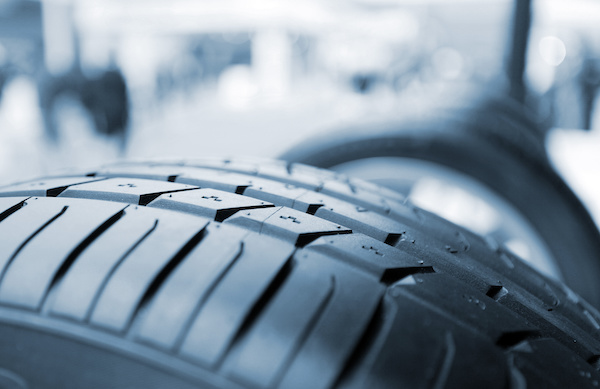
When it comes to our vehicles, we often focus on the engine, brakes, and other mechanical components. However, there's one essential element that keeps us connected to the road and ensures a safe and smooth journey: tires. A good set of tires provides traction, stability, and comfort. But did you know that not all tires are created equal? In fact, there are various types of tires designed to meet specific driving needs and road conditions. If you're in the market for buying tires, you've come to the right place. Here is a guide to the most common types: All-Season Tires As the name suggests, all-season tires are designed to perform well in a variety of weather conditions, including dry, wet, and light winter conditions. They offer a balanced blend of performance, longevity, and comfort, making them popular for everyday commuters. Summer Tires Optimized for warm weather and dry road conditions, summer tires provide superior grip and handling. They feature special ... read more
Posted on 4/30/2023
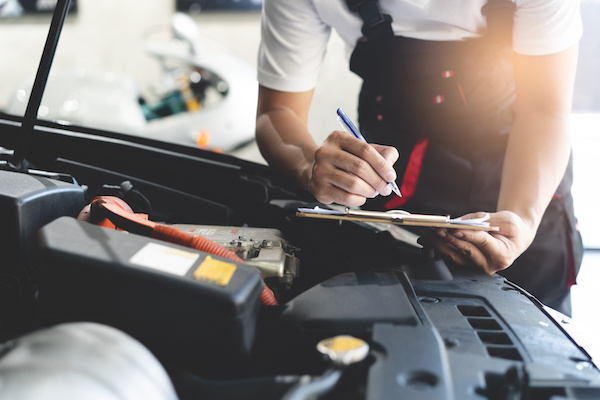
Taking care of your automobile requires several maintenance checks to ensure it works perfectly. Ignoring these services can cause a range of issues from mere discomfort to poor functionality or at worst, car accidents. Short term maintenance These services are frequently done and it takes about a year before you need to do it again. Replace the engine oil and filter. For advice on how far you should commute without oil changes, read your owner's handbook. Most cars have an oil and filter replacement interval of 3,000 to 8,000 miles. Synthetic oil can boost the maintenance interval to 15,000 miles. Change your synthetic oil at least once a year, irrespective of the amount of mileage you drive. Tread depth and tire pressure Because well-maintained tires are an important aspect for safety and fuel effecient trips, you need to routinely check and examine your tires before embarking on a long journey. Check your tire pressure once a month, as well as before lengthy excursions or ... read more
Posted on 3/30/2023
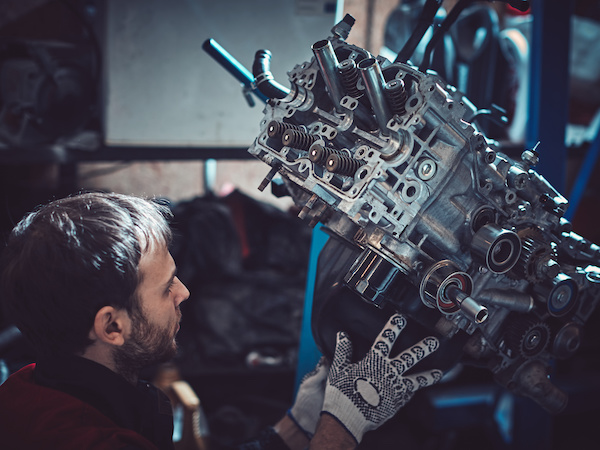
When it comes to auto repairs, one term that you might hear thrown around is "overhaul". But what exactly does it mean, and when do you need it? In this blog post, we'll explore what an overhaul is and when it might be necessary for your vehicle. What is an Overhaul? An overhaul, also known as an engine rebuild, is a comprehensive repair process that involves taking apart and rebuilding the engine of a vehicle. This type of repair is typically done to restore the engine's performance to its original specifications or to improve its performance beyond what it was originally designed for. During an overhaul, the engine is disassembled and inspected, with worn or compromised components being replaced as needed. The parts exchanged can include everything from the cylinder heads and pistons to the bearings and crankshaft. Once all of the necessary repairs have been made, the engine is reassembled and tested to ensure that it is functioning correctly. When Do You Need a ... read more
Posted on 2/28/2023
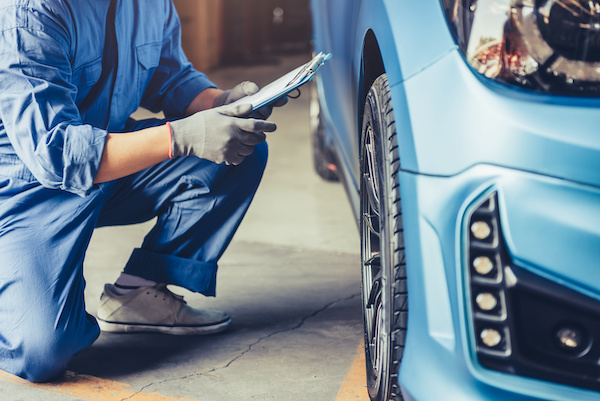
Purchasing a new vehicle can be an exciting experience, but it can also be a significant investment. Before making a purchase, it's important to ensure that the vehicle is in the condition the seller claims and that it can meet your needs. A pre-purchase inspection can help you make an informed decision and avoid potential issues. What Is a Pre-Purchase Inspection (PPI)? A pre-purchase inspection is a comprehensive evaluation of a vehicle before purchase. It typically includes a thorough examination of the vehicle's major components, including the engine, transmission, brakes, suspension, and electrical systems. Benefits of Pre-Purchase Inspections: Identify Potential Issues A PPI can help identify any potential vehicle issues before you buy it. It can include mechanical issues, such as engine or transmission problems, as well as cosmetic issues, such as rust or damage. By identifying these issues early, you can avoid purchasing a vehicle that requires costly ... read more
Posted on 1/30/2023
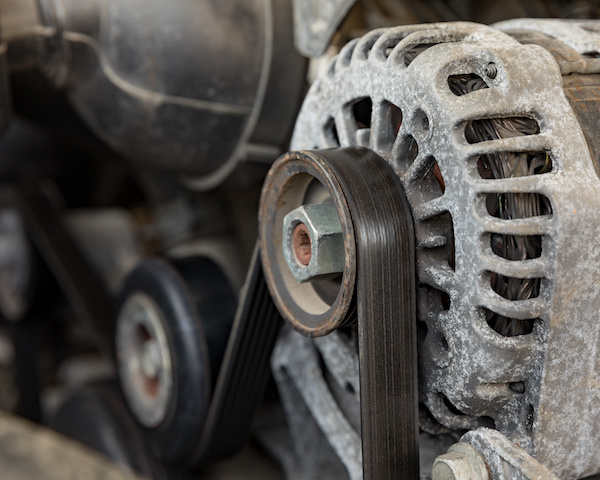
When the mileage on a vehicle reaches between 50,000 and 100,000 miles, the chances of its serpentine belt, which sends power to multiple engine accessories, such as the alternator, power steering and water pump, and A/C compressor, failing goes up considerably. And so, too, does one's chances of being left stranded on the side of the road. Signs That Might Suggest Your Serpentine Belt Is Failing Unlike other vehicle components, serpentine belts don't usually stop working right away. They gradually become less and less efficient, and eventually, it gets to the point where they start to throw off a few subtle and not-so-subtle signs to let drivers know something is wrong. Some of these signs include the following: Squealing sounds – One of the first signs of a failing serpentine belt is a high-pitched squealing sound that emanates from under the hood. Sometimes, this sound indicates the belt is misaligned or is somehow slipping. It could also suggest i ... read more
Posted on 12/22/2022
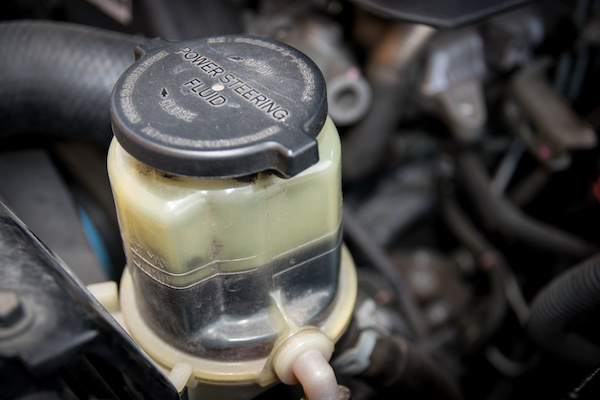
Has the question of whether you need to replace your car's power steering fluid or not been bothering you? You've come across the right article to best educate you on the matter. Don't let worry take control when you can know once and for all. What Is Power Steering Fluid? Power steering fluid is a fluid that is used by the power-steering system to establish a hydraulic contact between both the steering wheel with the front wheels, enabling it to move more easily. Additionally, power steering fluid greases the steering system's moving elements, ensuring maximum performance. Does the power steering fluid need to be replaced? Although the power steering fluid doesn't really expire, if it is not replaced or drained as necessary, it will deteriorate in the system with time. Here are signs that you need to replace your power steering fluid; Power Steering Fluid Leakage In case you notice a red fluid leaking onto the floor of your driveway, then it's most likel ... read more
Posted on 11/30/2022

The lights on the outside of our cars, SUVs, and trucks serve many different purposes. Sometimes, it can be challenging to keep track of all of them. Since they are external, it can be hard to detect when they go out. Lights are vulnerable to outages, damage, and even electrical failures. Whenever you require automotive lighting service or repairs, turn to Pete’s Auto Service for help. Types of Car Lights Low Beam Headlights - These are the basic headlights that aim forward to light up your path and let others know of your presence without blinding them. They improve visibility and safety and can be used pretty much anytime and through any conditions. High Beam Headlights - These are your bright headlights that illuminate dark or unlit roads. You should avoid using them when vehicles are coming toward you or driving in front of you. It is also frowned upon to use them when it is precipitating. Daytime Lights - Most modern vehicles have this category of lighting that tu ... read more
Posted on 10/29/2022

When you are driving around and suddenly feel a vibration in your car, it can be a little unnerving. Whether you are just getting used to the brakes, or they have always been like this, it is important to know what causes that vibration when you brake. What Actually Happens When You Are Braking? When you press down on the brake pedal and stop the car, there are several things happening at once. First, you are stopping the rotation of your tires (which is what actually causes the friction that causes your car to slow down). Second, you are forcing fluid through hoses connected to pistons within each brake caliper (that is what makes those pistons push against pads). Third—and this is where things get interesting—the fluid pushes back against those pistons to create pressure that helps slow down your car further. What Causes The Vibration When Braking? Vibrations while breaking are never a good sign! They can indicate a problem with your car's braking system, engine ... read more